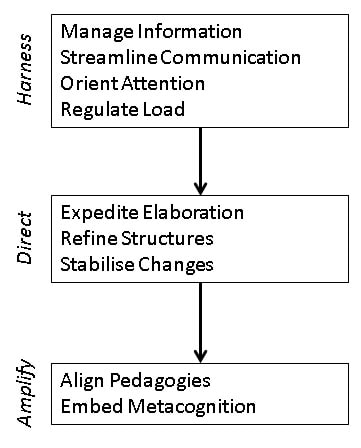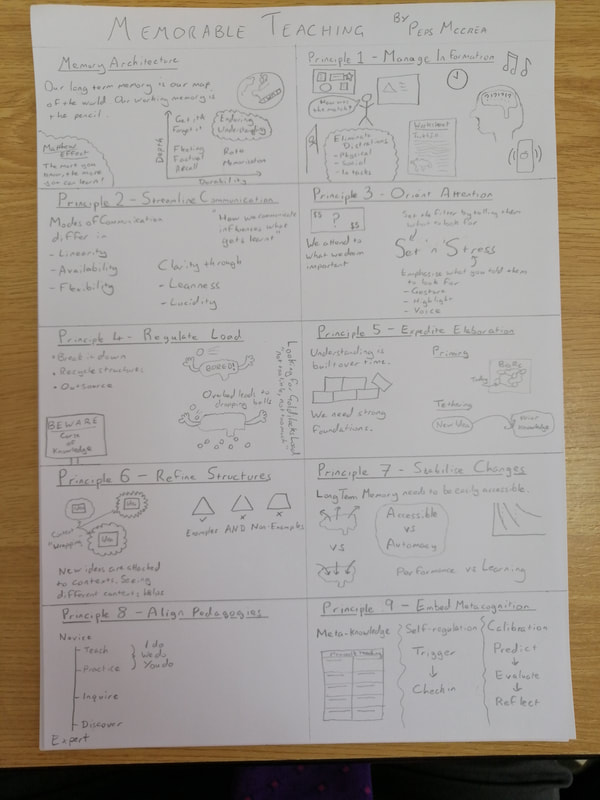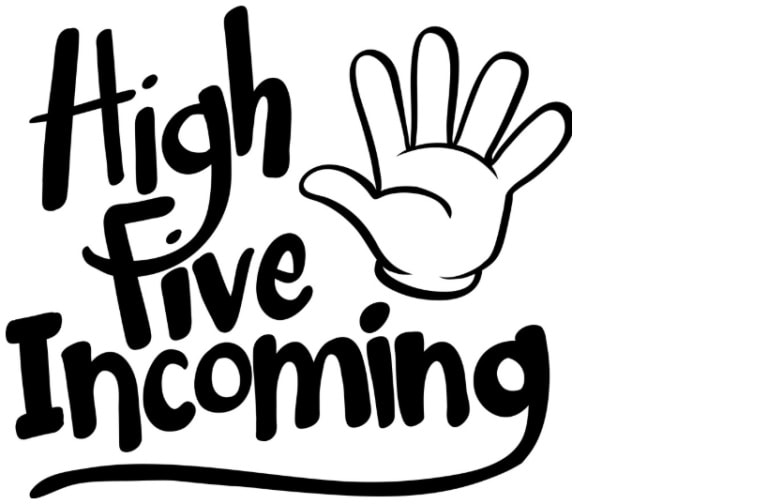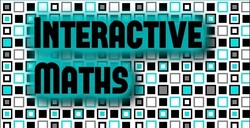|
Memorable Teaching by Peps Mccrea is an excellent short read as an introduction to some of the big areas of cognitive science. After a brief overview of the architecture of Long Term Memory and Working Memory, and how they interact to create Deep and Durable learning, Mccrea launches into an explanation of his 9 Principles of Memorable Teaching. Each Principle is described concisely, with descriptions and key ideas, and further reading on the topic. I created this sketch note summary of the key points for me. There are lots of links to things I have been working on over the last few years, such as: removing most of my displays and streamlining my resources (Principle 1); thinking about the cognitive load by breaking tasks down (Principle 4); ideas from variation theory and examples and non-examples (Principle 6); desirable difficulties and especially spaced retrieval through low stakes quizzes and starter activities (Principle 7). Over the last few weeks I have been thinking about Mark McCourt's idea of the Teach->Do->Practise->Behave model of learning, which links in with Principle 8. One area I want to work on more is making my students elaborate more. I am using Cold Call a lot more now to do this, bouncing answers from one to the next, but I still need to work on priming their minds and tethering to their prior knowledge in a more deliberate way.
1 Comment
Ben Gordon suggested this idea, and started it off on his "Teach Innovate Reflect" blog. Peter Mattock picked up the mantle in his blog too, as did some others. Ben has collated the posts here. I am going to use the same format that Ben suggested, which can be seen below: Format:
I have grown to think it is really important that we seriously reflect on what we do and why over the last few years, as well as thinking hard about what we read and the implications it has on our teaching. This is why I have been doing semi-regular Personal Reflections posts. I am planning on building in some dedicated T&L time later in our year (southern hemisphere, so we are only a third of the way into our year) for staff to quietly reflect on their targets and how they have progressed towards them. But it is also important for teachers to take control of their own professional development, and writing blogs has always been that for me. So here are my High Five for this year (well actually a High 7, but I hope you will indulge me!) 1. MARGE What I learnt: The stages of learning that we as teachers need to be aware of consist of Motivate, Attend, Relate, Generate, Evaluate. Source: Arthur Shimamura's paper MARGE; found through Tom Sherrington's blog post. Implications: When planning a sequence of learning we need to build in opportunities for students to partake in all five aspects of learning. We should help students to MOTIVATE their minds so they are primed for learning. The use of creating curiosity was a big take away for me, as well as building in anecdotes and stories. Getting students to ATTEND to their new learning is really important (Willingham's "memory is the residue of thought") and we often have to direct students attention to the important aspects as they are unable to do this themselves as novices. Students should have lots of opportunities to RELATE what they are learning to what they already know, with Shimamura recommending the 3Cs (Categorize, Compare, Contrast) and using graphical organisers. We need to give students lots of opportunities to GENERATE their new knowledge (also known as retrieval practice) to strengthen the connections. And finally we should allow students to EVALUATE their learning (this seems to be linked to metacognition to me), especially after some time has elapsed (to check for learning not performance). I find this acronym useful to bear in mind when planning a learning sequence, so I can try to ensure I give students opportunities to do each of these things. The ones I have recently been incorporating a lot more of are GENERATION through weekly quizzes and Last Lesson, Last Unit, Further Back reviews at the start of lessons, and I use Example Problem pairs to help students ATTEND to what they need to. In the next bit I share one way how I might try to help students RELATE more. I did an INSET session on MARGE and you can find the presentation here and I also compared the model to the EBC model I was introduced to on a Future Learn course. 2. Sequencing Examples and Non-examples What I learnt: The sequence of examples we give can help students construct their own meaning, and so providing a faultless communication through examples can help ALL students succeed. Source: The Theory of Instruction by Siegfried Engelmann; www.variationtheory.com Implications: Direct Instruction (and scripted lessons) is something of a taboo subject in many education circles. After reading The Components of Direct Instruction, I decided to start reading The Theory of Instruction to get a better picture of what it really entails. I am about a third of the way through it at this point, and so far we have been looking at (in incredible granular detail) how examples can help students to understand new ideas. The idea of juxtaposing minimally different examples to highlight what effect variables have seems sensible. But the biggest takeaway for me has been the importance of non-examples of concepts. I need to think hard about how this fits in to a whole host of mathematical ideas. I can see how it works with simple concepts such as definitions, but I am still not sure about more abstract ideas such as processes we follow. I am planning to think about making some sets of non-examples (hopefully in conjunction with my team) for some of the concepts we introduce, as well as making use of https://nonexamples.com/ and trying to incorporate the use Frayer Models more regularly (I suggest some Thinking Activities here). 3. The four phase model of learning a skill What I learnt: When learning new ideas and concepts we go through a four stage model of Teach, Do, Practise, Behave. Source: Mark McCourt: The Return on the MrBartonMaths Podcast Implications: Since we all go through these phases when learning, it is of interest to me both as a teacher and as the person running the CPD programme at my school. As Mark states in the podcast, most lessons only cover the Teach and Do phases, as this shows performance ability. Of course, these are vital steps in the journey. But I have found that I am not incorporating as much independent practice into my classes as I would like. Or maybe I am? I do retrieval starters (though Mark would not like these as they break up the learning episode), and weekly quizzes. This cover topics in a mixed order, but do not focus on a particular skill. I think I need to build in more time for intelligently designed sequences of questions on a topic. I am making a bigger effort to include ideas from the behave phase at an appropriate time (Mark suggests 2 years after initial teaching), and I do this mainly through the weekly quizzes and the Further Back questions in my starters. These are usually out of context exam questions. But perhaps I need to build in more problem solving questions from the likes of NRICH and UKMT. And what about CPD? Teachers need to go through these phases too when improving their practice. We know that one off sessions don't lead to improvements (though they might be a useful starting point). But most CPD only utilises the Teach phase. No chance for teachers to Do. When running sessions I will endeavour to build in more opportunities for teachers to actually Do the strategy in a role playing environment. But the real power of this model will be in the coaching programme (discussed below). 4. The importance of sleep What I learnt: Sleep affects so many aspects of our lives and wellbeing. In particular, sleep is an essential part in the learning process where new ideas are consolidated. Source: Why We Sleep by Matthew Walker and Learning How To Learn MOOC. Implications: Many students do not sleep enough (e.g. here). It is so easy for them to become distracted that sleep seems like something that can be pushed aside. Many of our students claim the workload of the IB means they have to choose between working and sleep (so they choose to work). Of course, whilst there are high demands in the IB, this is not true. It is all the other things that take up time they should be getting rid of. The myth of multitasking probably leads many of them to being less efficient than they could be. But maybe if they knew the damaging effect that lack of sleep can have on them, they would take it more seriously. Increased risk of heart disease, cancer, car crashes, anxiety, depression, and a host of others. We need to start educating students in the importance of sleep for healthy lives. We talk about diet and exercise. But rarely is the importance of sleep discussed. And from a teachers perspective, I need to be aware that this lack of sleep might be playing havoc with what students remember from day to day. If they are not getting enough sleep, they are probably not consolidating the new learning effectively. However, whereas accepting that students will forget between lessons due to the forgetting curve can help us teach better (as we can incorporate spaced retrieval, for example), we should not accept that lack of sleep is the way it is. Whilst not being surprised by it, I will still try to educate the students to make sleep a priority in their lives. 5. Instructional Coaching is an effective form of professional development What I learnt: there are different forms of coaching and instructional coaching is placed well to lead to improvements in teaching. Source: The Impact Cycle and the Instructional Coaches Institute. Implications: Instructional Coaching positions coach and teacher as partners (in accordance with the partnership principles). Whilst the teacher is the decision maker about their goals and what they will do, the coach enters a dialogue with them to help find a way forward. As this is a dialogue, the coach will offer suggestions and support (different from a facilitative model), but will not force their methods upon the teacher (different from a directive model). The benefits of coaching are that it is sustained over a period of time and individualised. Each teacher gets support in the area they want to focus on, and coach and teacher work together until the teacher is successful. The sustained nature also allows teachers to not just go through the Teach phase, but also the Do phase (practising before using it in class) and the Practice phase (as they use it in different contexts over a few weeks). The behave phase will come later, after the coaching cycle has finished, but this puts teachers on the path to success. 6. Think of the introverts What I learnt: Between a third and a half of people are introverts, but many of our school systems are built for extroverts. Source: Quiet by Susan Cain Implications: I am an introvert. I have started reading this book, and it has already had some profound impacts on me. Introverts react differently to stimulation than extroverts. They actually are more receptive to stimulation (from social stimulation, to caffeine stimulation). Which means they require less of it. Indeed, they are much more easily over stimulated than extroverts, who need more stimulation to stop them from becoming under stimulated and bored. This is something I experience daily. When in a group of people I literally cannot focus if more than one conversation is going on. I am being over-stimulated by the multiple conversations. And it is tiring. It is not that I don't enjoy these conversations. In fact, the ones that give me something to think about are great. But afterwards I need some time to decompress. Much of the world today, including schools, is designed for extroverts. But many of the greatest inventions and discoveries through history came from introverts working in solitude (Newton and Gravity, Wozniak and Apple computers). They are the often over looked leaders (the introverted Rosa Parks compared to the extroverted Martin Luther King Jr). A few things come to mind: 1) how can we utilise the power of the introverts in our classrooms, both as individual thinkers and leaders? And how can I ensure that all students can benefit from the power of thinking deeply (links back to the independent practice from above). 2) how can we ensure we are not over stimulating introverts, and giving them the time they need to decompress? If they are always in environments where they are expected to work in groups, or there is lots of chatter going on, they will become exhausted (and probably not aware of why). 3) how can I as an introvert be more aware of my own personality, and use this to my advantage. 4) Don't use phrases like "He needs to be more active in class" in reports. For introverts, that is just not how they learn. They work by thinking hard to themselves, unlike extroverts who think openly and require input from others. Saying things like this just perpetuates the myth that we should all aim to be extroverted. 7. The Power of Cold Call and Show Call
What I learnt: Cold Call and Show Call are excellent ways to check for understanding and build a culture of accountability in class. Source: Teach Like a Champion 2.0 by Doug Lemov Implications: This book is a must read for all teachers. It is full of strategies that we can all use in our classes to enhance the learning of our students. But it was Cold Call and Show Call that had the biggest impact on me. By using Cold Call I have students not only answering the questions more regularly (as they know they could be asked) but also I benefit from a better understanding of what they can each do at any point in time, and they benefit from hearing explanations as to why and how things work from their peers more often. Similarly, with Show Call, I can show students work to the whole class. I do this using a visualiser (my favourite bit of kit at the moment). We can dissect errors and misconceptions. I can show off exemplary work. |
Dan Rodriguez-Clark
I am a maths teacher looking to share good ideas for use in the classroom, with a current interest in integrating educational research into my practice. Categories
All
Archives
August 2021
|
|
Indices and Activities
|
Sister Sites
|
©2012-2023 Daniel Rodriguez-Clark
All rights reserved |



 RSS Feed
RSS Feed
